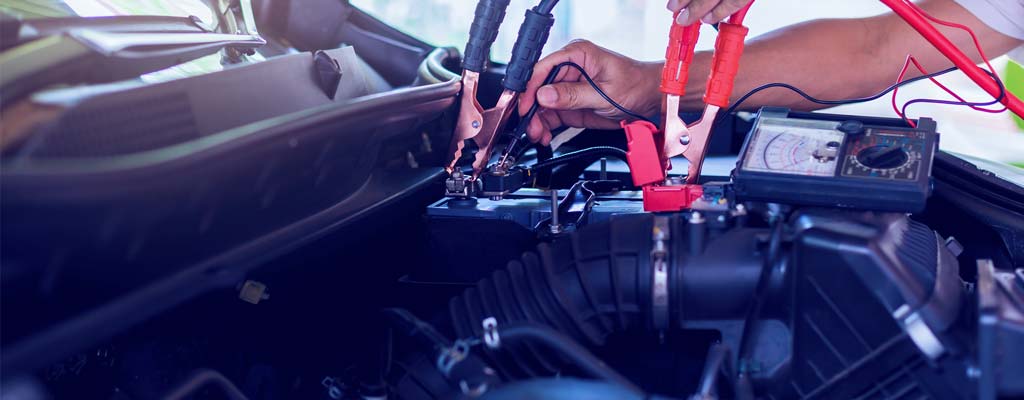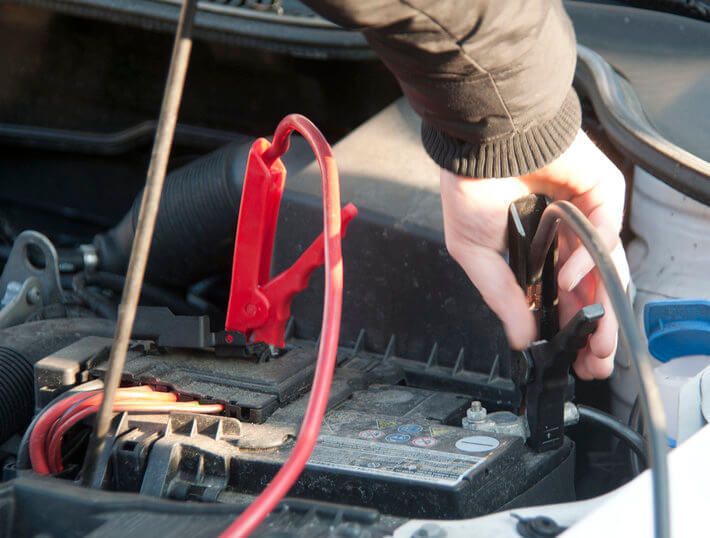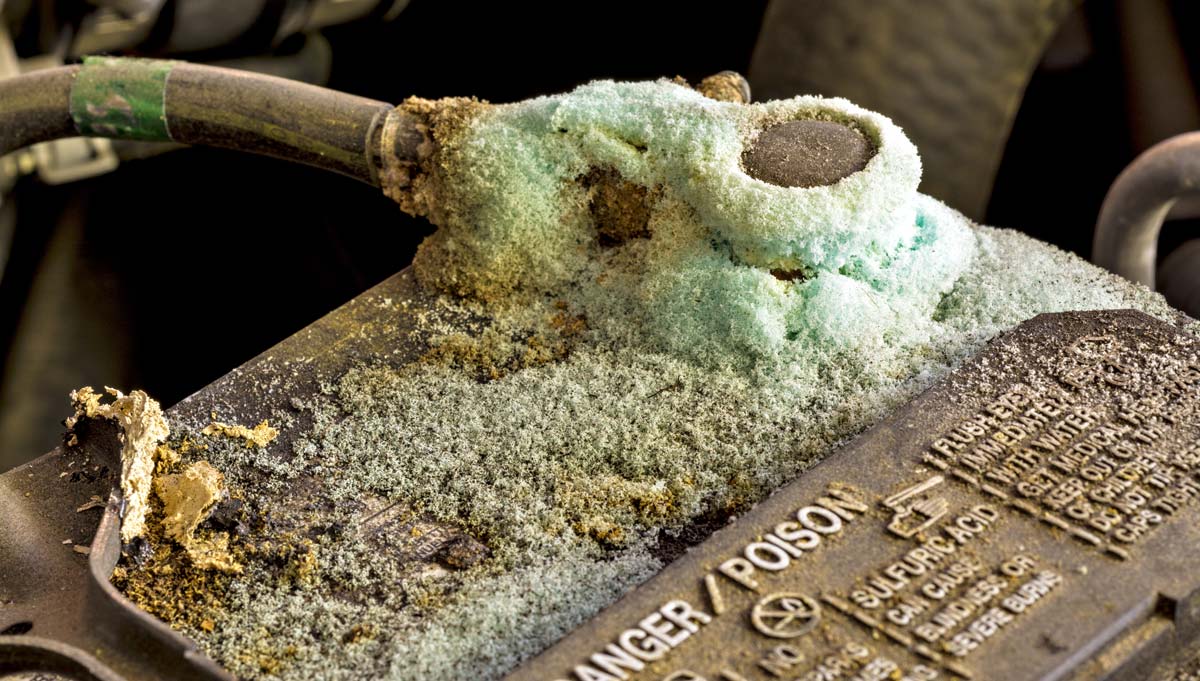The battery’s dead, and you haven’t even driven anywhere—frustrating, isn’t it? If you’ve ever wondered about the reasons car battery keeps dying while parked, you’re not alone. This common issue leaves many drivers confused. Could it be something you’re doing—or not doing?
Understanding why this happens can save you time, money, and stress. Stick around, and we’ll dive into the reasons your car battery might be draining, even when your car is just sitting in the driveway. With the right knowledge, you’ll be better prepared to tackle the issue head-on, ensuring you won’t be stranded when you need your vehicle the most.

Credit: www.lesschwab.com
Parasitic Drain
Car batteries often die while parked due to parasitic drain. This occurs when electronic devices keep using power. Even when the car is off, things like lights or alarms can slowly drain the battery.
Have you ever found yourself wondering why your car battery keeps dying even when your car is parked? One common culprit behind this frustrating issue is parasitic drain. Parasitic drain occurs when components in your vehicle continue to draw power from the battery, even when the engine is off. This hidden power leak can leave you stranded with a dead battery. Understanding what causes parasitic drain and how to identify unnecessary power consumption can help you prevent this inconvenience.
Common Causes Of Parasitic Drain
Parasitic drain might sound like a complex issue, but the causes are often straightforward. Faulty wiring is a common suspect. It can lead to a continuous flow of electricity even when your vehicle is parked. Another cause can be malfunctioning electrical components like glove box lights or trunk lights that stay on unnoticed. These tiny bulbs may seem harmless, but over time, they can drain your battery. Aftermarket accessories like GPS units or stereo systems are also known contributors. If installed improperly, they can draw power, silently draining your battery while your car is idle.
Identifying Unnecessary Power Consumption
Pinpointing what’s draining your battery can be a bit like detective work. Start by checking for any lights that might be left on. Glove box lights or vanity mirror lights can be sneaky culprits. Consider if you’ve added any new gadgets to your car recently. Aftermarket installations should be double-checked to ensure they’re wired correctly. Use a multimeter to measure the current flowing when your car is off. This tool can help you identify if there’s an abnormal draw, giving you a clue on where to start investigating. Have you ever found something unexpected draining your battery? Share your experience in the comments, and let’s see if we can solve this mystery together. By taking these steps to identify and address parasitic drain, you can prevent your battery from dying unexpectedly. Who knows, you might just save yourself from a frustrating morning where your car refuses to start!
Faulty Electrical Components
Car batteries dying while parked can be frustrating. Often, faulty electrical components are to blame. These components drain the battery even when the car is off. Identifying the culprits can save time and money. Let’s explore common faulty components.
Malfunctioning Alternator
The alternator charges the battery while driving. A malfunctioning alternator fails at its job. This leaves the battery undercharged. With each start, the battery weakens. Soon, it cannot hold a charge. Regular alternator checks can prevent this issue.
Defective Car Alarm System
A car alarm protects against theft. Yet, a defective alarm drains the battery. It may activate unnecessarily. These false alarms consume power. This constant drain can kill the battery. Regular maintenance of the alarm system is essential. It ensures the system works correctly.
Battery Age And Condition
Car batteries often die while parked due to age and condition. Older batteries lose charge faster, especially if damaged. Regular checks can help maintain battery health and prevent unexpected failures.
Car batteries are the unsung heroes that keep our vehicles running smoothly. However, when parked, they can sometimes become a surprising source of frustration. One primary reason your car battery might keep dying is its age and condition. Batteries are not immortal and wear out over time. Understanding how their age and condition affect performance can save you from unexpected breakdowns.
Signs Of An Aging Battery
Have you noticed your headlights dimming or your car taking longer to start? These are telltale signs of an aging battery. A battery’s lifespan is typically three to five years. But numerous factors, including driving habits, can speed up its decline. Regularly inspecting your battery for corrosion or leakage can also reveal its age-related issues. When you pop the hood and spot a white, powdery substance on the terminals, it’s a red flag.
Impact Of Weather On Battery Life
Weather plays a significant role in battery health. Extreme temperatures can drain a battery faster than usual. Cold weather, in particular, requires more power from the battery to start the engine, while hot weather can cause it to overheat and weaken. Have you ever experienced a battery failure on a chilly morning? This often happens because the battery’s chemical reactions slow down in cold temperatures. Keeping your vehicle in a garage or shaded area can protect the battery from harsh conditions. Investing in a battery heater or insulator can also be a wise decision for those living in areas with severe weather. Is your car battery older than three years? If so, it might be time to consider a replacement. Regular maintenance and early detection can help ensure your car starts smoothly every time you turn the key.
Corroded Or Loose Battery Connections
Your car battery keeps dying, and you’re at a loss. You might want to check the battery connections. Corrosion or looseness can lead to unexpected power drainage even when your car is parked. Addressing these issues could save you from frequent jump-starts and potential battery replacements.
Effects Of Corrosion
Corrosion is a silent enemy of battery connections. It forms a whitish or bluish crust around the terminals. This crust acts as an insulator, preventing the flow of electricity. Picture trying to pour water through a blocked pipe—that’s your battery trying to supply power through corroded terminals.
A corroded connection means your battery is working harder than it should. This extra strain can lead to quicker battery depletion. Regularly check your battery for these signs of corrosion. A simple cleaning might restore the efficiency your battery needs.
Ensuring Tight Connections
Loose connections are another culprit for battery drain. If the terminals are not tightly secured, they can cause intermittent contact. Imagine trying to use a loose plug in a socket; it’s frustrating and inefficient. Your battery feels the same way.
Ensure your battery connections are snug and secure. Use a wrench to tighten them, but be careful not to overtighten and damage the terminals. Tight connections ensure the power flows smoothly, maintaining your battery’s charge while parked.
Have you ever thought about how a simple tool like a wrench could save you from a dead battery? Next time your car battery dies unexpectedly, check the connections. It might just be the quick fix you need.
Human Error
A car battery may die while parked due to human errors. Leaving lights on or not fully closing doors can drain power. Forgetting to unplug devices like chargers also contributes to battery depletion.
Human error is a common reason why a car battery might die while parked. Often, these are simple oversights that can lead to significant frustration. Understanding these mistakes can help you prevent future battery issues and save you from the hassle of being stranded.
Lights Left On
Leaving your car lights on is a classic mistake. It’s easy to forget, especially if you’re in a hurry or distracted. You park your car, grab your things, and rush out, not noticing the faint glow of the interior lights or the headlights. This oversight can drain your battery overnight. Modern cars often have alarms or automatic shut-off features to prevent this, but they’re not foolproof. Next time you park, take a quick moment to check your lights. It’s a small step that can save you from a dead battery and a delayed start to your day.
Accessory Misuse
Using your car’s accessories while parked can also lead to a dead battery. Listening to the radio, charging devices, or running the air conditioning without the engine on can drain power. You might think, “It’s just a few minutes.” But those minutes add up, especially if your battery is already weak. If you plan to use accessories, consider keeping the engine running or limiting the time they’re on. Think about your habits. Do you use your car as a charging station or a mini-theater? Small adjustments can make a big difference in maintaining battery life.

Credit: www.firestonecompleteautocare.com
Extreme Temperatures
Extreme temperatures can drain a car battery quickly. Cold or hot weather affects battery efficiency. Keeping the car parked for long periods worsens the issue, leading to frequent battery failures.
Extreme temperatures can take a heavy toll on your car battery, often leading to unexpected breakdowns. Whether it’s the biting chill of winter or the scorching heat of summer, these conditions can silently drain your battery while your car is parked. Understanding how these temperature extremes affect your battery can help you take proactive steps to avoid getting stranded.
Cold Weather Impact
Cold weather can significantly reduce your battery’s ability to function effectively. Batteries rely on chemical reactions to generate power, and low temperatures slow these reactions down. This sluggishness can leave your car struggling to start on a frosty morning. Have you ever tried starting your car after a night of freezing temperatures, only to hear a weak crank or, worse, nothing at all? This is because the cold slows down the battery’s chemical reactions, making it harder to produce the necessary energy. To combat this, consider investing in a battery warmer or parking your car in a garage. These small changes can keep your battery cozy and ready to go, even when Jack Frost comes knocking.
Heat’s Effect On Battery Performance
While the cold can slow things down, heat speeds up the chemical reactions, which isn’t always a good thing. Excessive heat can cause the fluid inside the battery to evaporate, damaging the internal structure. This can significantly shorten your battery’s lifespan. Think of a sweltering summer day when you return to your car, only to find it won’t start. The intense heat may have evaporated the battery fluid, leaving you stranded. This often happens when your car is parked in direct sunlight for extended periods. To mitigate this, try parking in shaded areas or using sunshades to protect your car. Regularly checking and maintaining your battery’s fluid levels during hot months can also prevent unexpected failures. Have you considered how simple habits like these could save you from the hassle of a dead battery? It’s often the small, proactive measures that ensure your car stays running smoothly, regardless of the weather outside.
Battery Charging System Issues
Dealing with a car battery that dies while parked can be frustrating. Often, the culprit lies within the battery charging system. This system is crucial for keeping your battery alive. When it fails, your battery drains even if the car is not running.
Problems In Charging Circuit
The charging circuit is a key part of the battery system. It ensures the battery gets the needed power. Faults in the circuit can cause the battery to drain. Loose connections or damaged wires disrupt the flow of electricity. Corrosion can also affect the connections, leading to power loss. A malfunctioning alternator can fail to charge the battery properly. Without a healthy charging circuit, the battery will struggle to maintain its charge.
Signs Of A Failing Charging System
Recognizing signs of a failing charging system helps prevent battery issues. One common sign is dimming headlights. They may flicker or lose brightness. Dashboard lights might also appear dim. If your car struggles to start, the charging system could be at fault. Frequent jump starts indicate the battery isn’t holding power. A battery warning light on the dashboard is a clear signal. It suggests the charging system needs attention.

Credit: shop.advanceautoparts.com
FAQs on Reasons Car Battery Keeps Dying While Parked
Why Does My Car Battery Die When Parked?
A car battery can die when parked due to parasitic drains, such as interior lights or faulty electronics. Cold weather can also affect battery performance. Regularly checking and maintaining battery health can prevent unexpected failures.
How Can I Prevent Battery Drain When Parked?
To prevent battery drain, turn off all lights and electronics before exiting the car. Disconnect devices that draw power, and consider using a trickle charger. Regular maintenance and battery checks are essential for long-term health.
Does Cold Weather Affect Car Battery Life?
Yes, cold weather can negatively impact battery performance. Low temperatures slow down chemical reactions inside the battery. This results in reduced power output and increased risk of failure. Keeping the battery warm or using an insulated cover can help.
Can A Faulty Alternator Drain My Battery?
Yes, a faulty alternator can drain your battery. It can fail to charge the battery properly, leading to frequent discharges. Regular inspection and maintenance of the alternator can prevent such issues and ensure your battery stays charged.
Conclusion
Keeping your car battery alive involves simple steps. Disconnect unnecessary devices. Check for faulty electrical systems. Regular maintenance helps. Examine connections for corrosion. Charge the battery regularly. Avoid leaving lights on. Test the battery’s health often. Replace weak batteries promptly.
Consult a mechanic if issues persist. These actions prevent battery drain. Protect your vehicle’s battery life. Stay proactive in battery care. Enjoy reliable starts every morning. Simple habits make a big difference. Keep your car ready to go. These tips support a healthy battery.
Preserve your battery’s power. Keep it strong and dependable.

